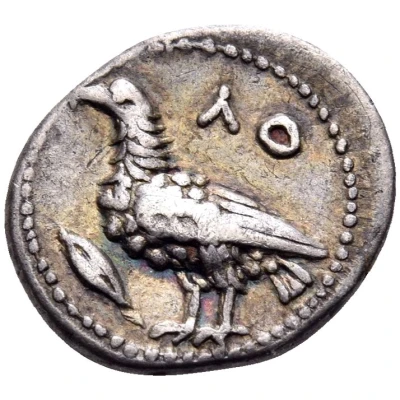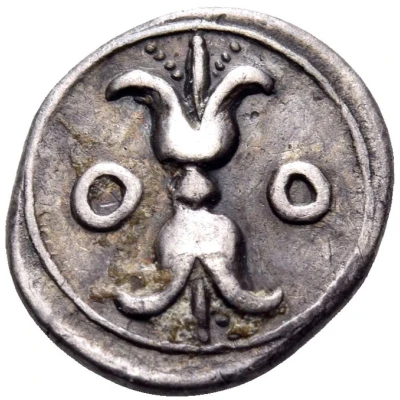


© Nomos AG
Diobol 375 BC - 330 BC
| Silver | 0.80 g | 11 mm |
| Issuer | Lokroi Epizephyrioi (Bruttium) |
|---|---|
| Type | Standard circulation coin |
| Years | 375 BC - 330 BC |
| Value | Diobol (⅓) |
| Currency | Achaean drachm |
| Composition | Silver |
| Weight | 0.80 g |
| Diameter | 11 mm |
| Shape | Round (irregular) |
| Technique | Hammered |
| Orientation | Variable alignment ↺ |
| Demonetized | Yes |
| Updated | 2024-10-10 |
| Numista | N#402043 |
|---|---|
| Rarity index | 100% |
Reverse
Thunderbolt between Ο Ο.
Script: Greek
Lettering: Ο Ο
Unabridged legend: Διόβολος
Interesting fact
One interesting fact about the Diobol coin from Lokroi Epizephyrioi (Bruttium) is that it features a unique combination of symbols on its obverse side. The coin bears the image of a lion's head, which was a common motif in ancient Greek coinage, but it is also accompanied by a dolphin, which was a symbol associated with the Greek god Apollo. This combination of a lion and dolphin may have been intended to represent the city's maritime and agricultural connections, as well as its association with the god Apollo, who was revered as a protector of the city. This coin is a rare example of a city-state coin that combines both animal symbols and deities, making it a fascinating piece of ancient Greek numismatic history.